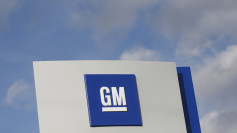German luxury carmaker Audi announced Tuesday that it will cease production of diesel and petrol vehicles by 2033, as part of an industry-wide shift to more environmentally-friendly electric cars.
"Audi is ready to make its decisive and powerful move into the electric age," CEO Markus Duesmann said. Starting in 2026, Audi plans to only launch new all-electric car models, while "gradually phasing out" production of internal combustion engines until 2033.
However, owing to high demand in China, Audi's local partners may continue to build combustion engine vehicles beyond 2033, he noted.
Carmakers throughout the world are investing heavily in the transition to battery-powered vehicles, touting green credentials in a world increasingly concerned about climate change.
In Europe, the shift has been accelerated in part due to harsher EU pollution laws and the 2015 "dieselgate" emissions cheating incident at Audi parent Volkswagen.
According to Duesmann, Audi is already launching more new electric cars this year than diesel or petrol models.
The four-ring company hopes to have more than 20 e-models in its inventory by 2025.
Duesmann also said Audi would keep working to improve its internal combustion engines until the end to ensure greater efficiency.
"Audi's last internal combustion engine will be the best we've ever built," he said.
Meanwhile, Tesla is constructing a Gigafactory outside Berlin that will initially produce roughly 500,000 vehicles each year.
Carmakers all around the world are pledging to go all-electric in the next few years.
BAIC, one of China's top state-owned automakers, has announced that it will phase out petrol vehicle sales by 2025, as has Jaguar in the U.K.
Volvo plans to sell solely electric vehicles starting in 2030, followed by General Motors starting in 2035.
Daimler, the maker of Mercedes-Benz, intends to phase out internal combustion engines by 2039, with German rival Volkswagen aiming for 2040.





